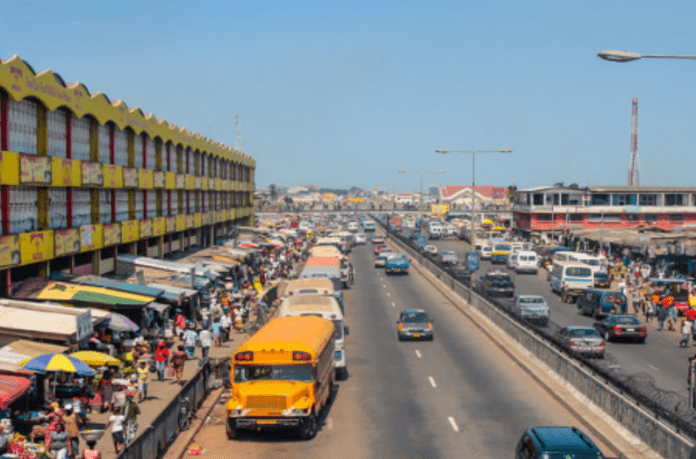The African Union (AU) has projected a contraction across the continent’s economies and the loss of almost 20 million this year amid the fallout from the coronavirus pandemic.
A report from the continental union, which comprises 55 African nations, cautioned that both formal jobs and informal jobs will be at risk. The informal economy — any economic activity that falls outside the regulated economy and tax system, such as street vending — constitutes a significant majority of employment across the continent.
Africa still accounts for a small percentage of confirmed coronavirus cases worldwide, the entire continent having now confirmed 10,663 cases as of Wednesday morning, against a global tally of more than 1.4 million.
By contrast, the United States, which has confirmed more than 400,000 cases, is expected to see total employment reductions of up 47 million in a worst case scenario, according to the Federal Reserve.
READ:
CSM kills 37; over 200 people infected!
Lockdown: 8 pastors in court for flouting govt’s directives
But with African economies already weakened by tumbling oil and commodity prices and an imploding tourism sector, along with mounting debt burdens, the continent is bracing for a substantial economic hit.
Average African GDP (Gross Domestic Product) growth had been predicted by the African Development Bank to come in at 3.4% prior to the outbreak in China, but in a report published Monday, the African Union projected a contraction in all possible scenarios.
The AU’s “realistic scenario” has the continent’s GDP contracting by 0.8% in 2020, while its “pessimistic scenario” would see a 1.1% contraction.
Foreign direct investment could reduce by up to 15% and governments are expected to lose up to 20-30% of their fiscal revenues in 2020 compared to the previous year.
Exports and imports of African countries are projected to drop by at least 35% from the level reached in 2019. Thus, the loss in value is estimated at around $270 billion. Combating the spread of the virus and subsequent medical treatment will lead to an increase of public spending in Africa estimated to be at least $130 billion.
Ambitious plan for debt cancellation
The report recommended that the African Union Commission (AUC), the AU’s secretariat that undertakes its day to day activities, lead negotiations of what it called “an ambitious plan for the cancellation of total African external debt,” which totals $236 billion.
ALSO:
These four countries ‘particularly vulnerable’ to coronavirus – Report
Do not panic over increasing Covid-19 cases – GHS
Sub-Saharan Africa’s debt has ballooned to nearly 60% of GDP over the past decade, meaning significant government resources which could otherwise be used to combat the pandemic are devoted to debt service.
“A first order of magnitude is the call by Ethiopia’s Prime Minister Abiy Ahmed for a $150 billion aid package as part of an Africa Global COVID-19 Emergency Financing Package,” the recommendation added.
Looking further ahead, the AU suggested that the coronavirus crisis should lead to a paradigm shift in how African nations trade with one another and the wider world, particularly China, the U.S. and Europe, and a fundamental re-imagining of their economies.
The bloc’s report urged African leaders to “diversify and transform their economies by strengthening the productive capacity of African private sector to transform raw materials locally.”
It also called for increased agricultural production and greater collaboration to establish and enhance collective health-care systems.
A new moral economy
On Friday, South African President Cyril Ramaphosa convened a teleconference of the African Union Bureau, which consists of the leaders of Egypt, Mali, Kenya and the Democratic Republic of Congo, as well as AUC Chairman Moussa Faki Mahamat. Other participants on the call included the leaders of Rwanda, Ethiopia, Senegal and Zimbabwe.
WHO Director-General Tedros Adhanom Ghebreyesus and Africa Centers for Disease Control and Prevention Director John Nkengasong gave presentations on the state of the pandemic in Africa, which Ramaphosa later characterized as “extremely concerning.”
In a letter to South Africans on Monday, Ramaphosa said the AU Bureau was exploring the possibility of a fiscal stimulus package, which could include debt in the form of interest payment waivers and deferred payments. He also suggested that in recent talks, international leaders had shown a willingness to support the continent through the crisis.
“This global pandemic has exposed the fragility of inward-looking and insular political, economic and social systems. It is leading some to call for ‘a new moral economy’ that has people and their welfare at its center,” Ramaphosa said.
“It has opened up space for critical action around social spending and equitable access to health care. It is challenging widely held preconceptions about the abilities of developing countries to respond to national emergencies.”

